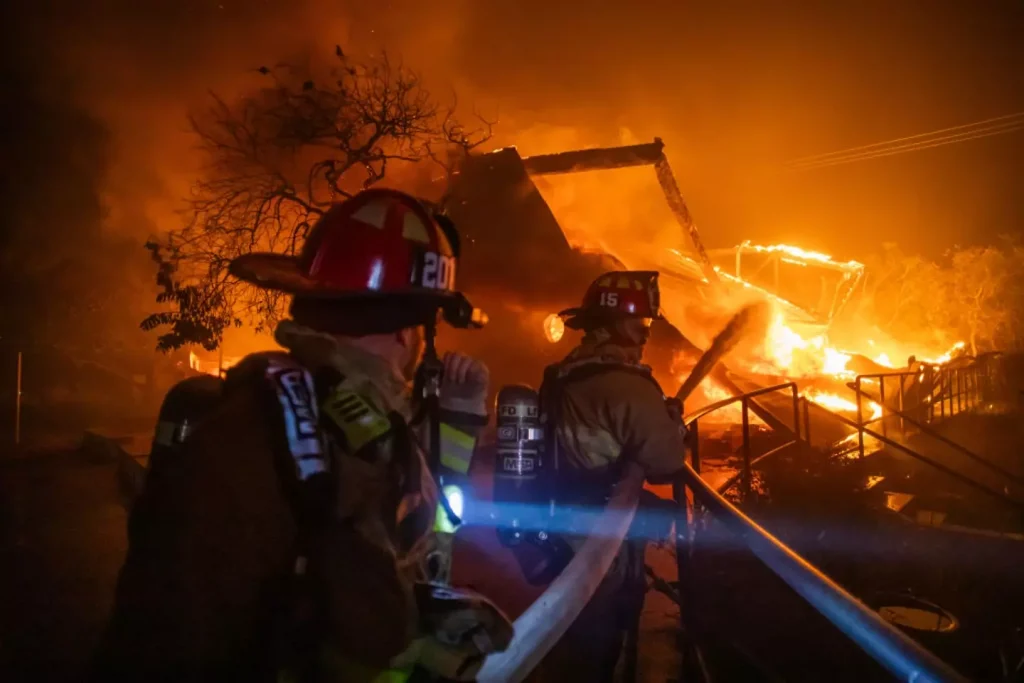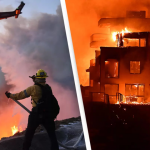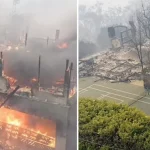There are several reasons why fresh water is generally preferred over salt water.
With multiple fires blazing across Los Angeles, there’s a specific reason why firefighters aren’t turning to the nearby ocean water to combat the flames.
The Palisades Fire, wreaking havoc between Malibu and Santa Monica, has been labeled the most destructive wildfire in Los Angeles County’s history.
Spanning over 17,000 acres, the fire remains at zero percent containment as of January 9.
As three additional fires—the Hurst Fire, Eaton Fire, and Sunset Fire—continue to burn, many are questioning why firefighters aren’t utilizing water from the Pacific Ocean to fight the flames.
“Is there any particular reason why we can’t use ocean water to help put out the fires?” one person asked on Twitter, while another suggested they had found a ‘solution’ to the wildfires, sharing a map that pointed directly to the ocean.

Water is known as fire’s natural enemy, but there are important distinctions between freshwater and saltwater that make freshwater the preferred option for firefighting.
One key difference, as noted by Technology.org, is that salt can cause corrosion. While ocean water might help contain the fire, storing it in water tanks and using it with firefighting equipment can damage the gear, potentially limiting its effectiveness in future efforts.
Another reason to avoid using saltwater is its long-term environmental impact. Salt makes it more difficult for plants to absorb water, which can leave landscapes barren for years after the firefighting efforts.

Even in areas with sparse vegetation, most firefighting systems are designed to work with fire hydrants and fire engine tanks, which are optimized for freshwater, making saltwater impractical.
Additionally, salt can reduce the cooling effect of water, making it less effective at lowering the temperature of a fire.
While saltwater could technically be used to fight the Los Angeles fires, it’s far from the ideal solution.
The question of using saltwater to fight fires arose after several Los Angeles County fire hydrants ran dry while firefighters battled the blazes, even though the water storage tanks for the hydrants had been filled before the fires began.
Jim Hudson, of the California Department of Forestry and Fire Protection, told CNN that the issue was a “challenge” in the early stages but reassured that the water system has since begun to “stabilize.”





